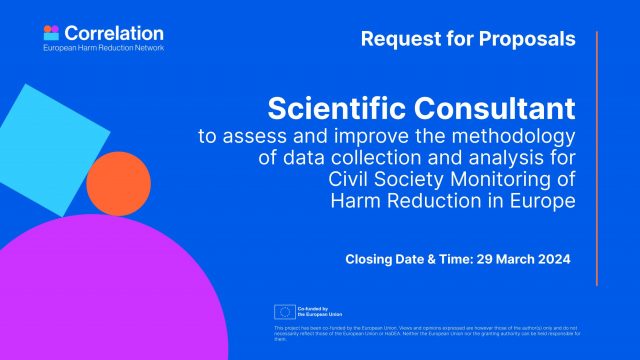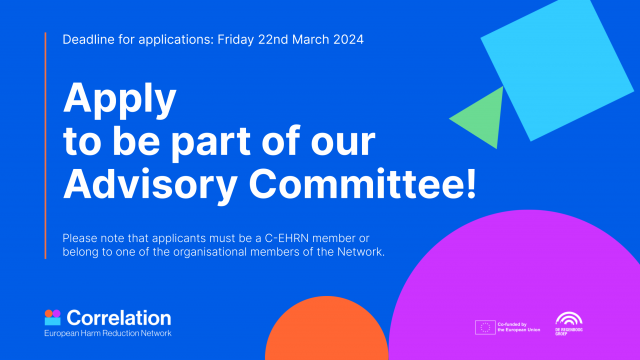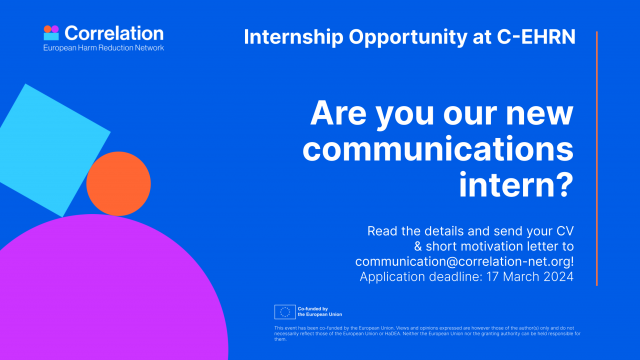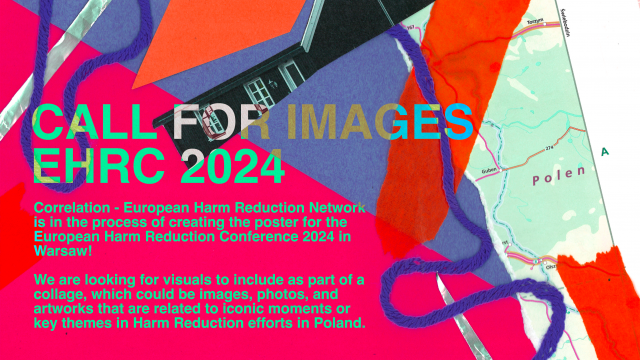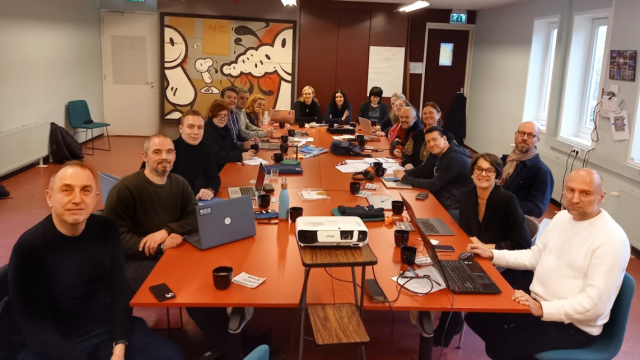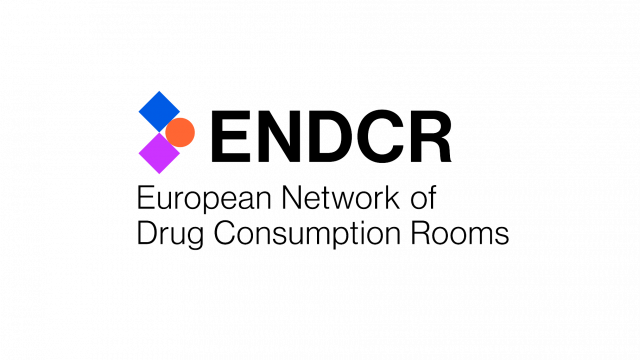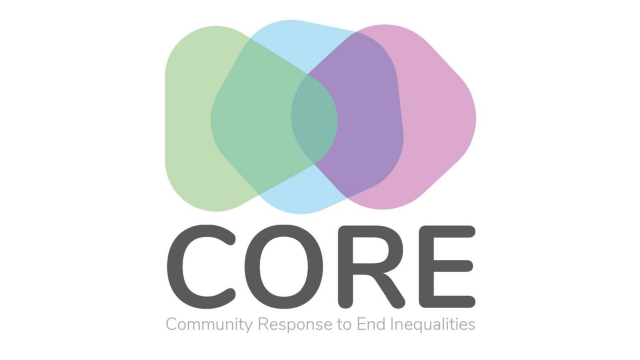Scientific Consultant to assess and improve the methodology of data collection and analysis for Civil Society Monitoring of Harm Reduction in Europe
| RFP Number | C-EHRN2024-01 |
| RFP Title | Consultancy Civil Society Monitoring Methodology |
| RFP Closing date & time | 29 March 2024 |
C-EHRN was established in 2004 in Amsterdam (NL) as a European civil society network and centre of expertise in the field of drug use, harm reduction and social inclusion. C-EHRN is hosted by Foundation De Regenboog Groep (FRG) – a non-governmental low-threshold organisation in Amsterdam, providing harm reduction services to people who use drugs and other individuals and communities disproportionately affected by social and health inequalities.
C-EHRN works towards a Europe that embodies a compassionate and equitable society where people who use drugs and other communities disproportionately affected by stigma, discrimination, and harmful (drug) policies have universal access to sustainable, high-quality health and social care, where social justice principles guide policies, and individuals and communities affected by harmful drug policies find empowerment and dignity.
As part of an Operating Grant for our activities in 2024, C-EHRN is looking for a Scientific Consultant to assess and improve the methodology of data collection and analysis for Civil Society Monitoring of Harm Reduction in Europe and strongly encourages professionals within the Network to submit proposals. Due to funding regulations, we specifically invite candidates from the EU Member States, whose GNI per inhabitant is less than 90% of the EU average (1).
BACKGROUND
Civil society has an important role in holding governments and donors accountable, among others, by engaging in independent monitoring and evaluation of services and programmes. In combination with advocacy, the application of monitoring tools are crucial strategies to hold governments accountable and to improve the implementation of policies and programmes in line with the needs of people who use drugs and their environments.
Since 2018, C-EHRN has developed a framework for European civil society-based monitoring of harm reduction, aiming, in the long-term, at improving harm reduction responses and policies in Europe. The Monitoring seeks to reflect the experiences of harm reduction service providers, focusing on how drug policies and specific harm reduction guidelines are (or are not) being implemented at the street level. Such in-depth and rich information is crucial to inform the development of policies and services for people who use drugs and can be of great value for civil society organisations advocacy and for policymakers.
Civil society and community-led monitoring of harm reduction in Europe plays a crucial role as a complementary source to existing monitoring mechanisms, particularly those operating at the European level, such as the European Centre for Disease Prevention and Control (ECDC) and the European Monitoring Centre for Drugs and Drug Addiction (EMCDDA).
We realise that our monitoring approach has its limitations. Accurate monitoring is a long-lasting process, requiring sufficient resources, annual evaluation, subsequent adjustments and improvements in its methods and indicators to increase data quality and consistency.
One of the network activities in 2024 aims to further develop C-EHRN monitoring, building on our previous work in the area. More specifically, C-EHRN will work with a consultant to critically assess, update and improve the methodology used in parts of the C-EHRN Civil society-led monitoring of harm reduction in Europe, namely those related to HCV care and HR essential services.
SPECIFIC OBJECTIVES OF THE CONSULTANCY
The development of the C-EHRN Monitoring methodology will involve a number of activities, including:
1) Participation in an in-person kick-off meeting in Amsterdam (2-3 days) to discuss and develop the detailed work plan for the consultancy
2) review and critical assessment of the current methodology of Civil society-led monitoring in the context of needs of various stakeholders (including review and critical assessment of the data collection instruments: Hepatitis C survey questionnaire and Essential Harm Reduction Services survey questionnaire and indicators of each of the data collection instruments); identification of the strengths and weaknesses of the current methodology
3) participation in relevant online meetings and consultations with C-EHRN Focal Points, Scientific Advisory Board and regular communication with the C-EHRN Research Team
4) development of an improved methodological framework for data collection and analysis to be used in the future.
REQUIREMENTS
- PhD degree in public health, social sciences, political science or related disciplines
- Extensive experience in applied research with a proven track record in the use of diverse research methods, especially survey design and comparative research methods
- Extensive knowledge in the area of monitoring and evaluation of public policies and services
- Experience in cooperation with monitoring agencies and/or civil society organisations
PROPOSED TIMELINE
All activities should be completed by the end of December 2024, with the preliminary work to be presented during the Focal Points meeting in December 2024. A specific timeline will be established in negotiation with the consultant.
HOW TO APPLY
To be eligible as a consultant, individuals must comply with C-EHRN’s Mission and Vision, which are available here.
Applicants must submit a short letter of interest and a CV. These documents should reflect the candidate’s competency to complete the consultancy, including references to the requested skills, knowledge and professional experience.
Please, submit your application to administration@correlation-net.org until the 29th of March 2024 23:59 CET. In the subject line of your e-mail, please indicate the Reference Number, the title of the Consultancy and your name:
Reference Number | Consultancy Title | Name & Family Name
Note: Incomplete applications will not be considered.
Important: The availability of this position is contingent upon securing funding. We anticipate having more clarity on the funding situation by late March or the beginning of April.
EVALUATION CRITERIA
All submitted applications will be reviewed by an Evaluation Panel composed of the Management Team of C-EHRN. The panel will assess the extent to which the proposals meet the requirements of each of the consultancies.
Additionally, the consultants should:
- Have no conflict of interest (to be declared in the letter of interest).
- Have proven experience and expertise in the area of work.
- Have an excellent level of English writing.
- Offer a good and reasonable price-quality ratio.
- Be based in an EU Member State whose GNI per inhabitant is less than 90% of the EU average.
Candidates and experts who have already contributed with satisfactory results to the work of C-EHRN in the previous years will be prioritised to ensure the quality of work.
Candidates with the highest evaluation will be invited for negotiation and signature of an agreement. C-EHRN reserves the right to enter into negotiations with one or more applicants to obtain clarifications or additional information and agree on the conditions and timing of the consultancy.
FOR MORE INFORMATION CONTACT
administration@correlation-net.org
(1) EU Member States whose GNI per inhabitant is less than 90% of the EU average: Bulgaria, Czechia, Estonia, Greece, Spain, Croatia, Cyprus, Latvia, Lithuania, Hungary, Malta, Poland, Portugal, Romania, Slovenia, Slovakia

